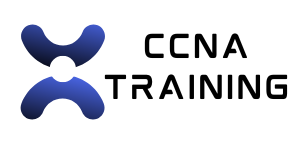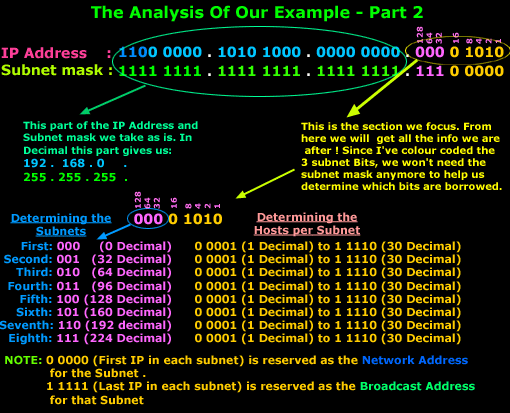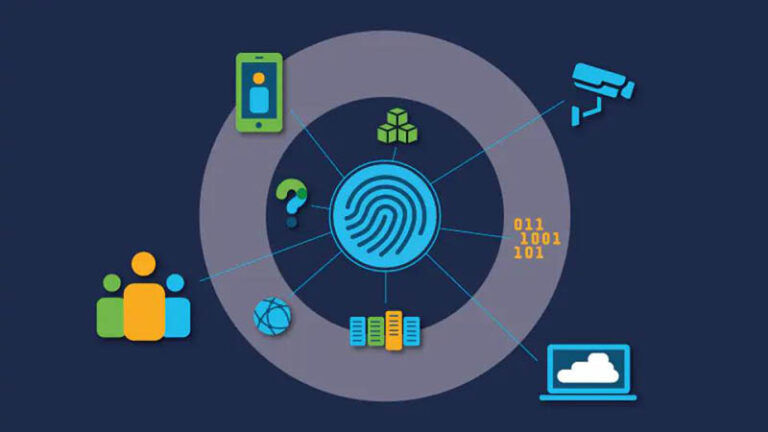So, you’ve been hearing rumors about Cisco’s certification overhaul, right? Well, they’ve finally done it – and trust me, it’s not just another rebrand with a fancy new name. I’ve spent the last decade watching certification programs come and go, and this one actually addresses what security teams have been begging for.
Let’s cut through the marketing fluff and get real about what this means for your career, your paycheck, and whether it’s worth your precious time and coffee-fueled study sessions.
What’s Really Going On Behind the Rebrand
“CyberOps” Is Out, “Cybersecurity” Is In – But It’s Not Just a Name Change
January 2025 marked the official switch from Cisco’s CyberOps certs to the new Cybersecurity certification line. I remember when they announced it last year — plenty of eye-rolls from security pros thinking “great, another rebrand to keep HR confused.”
But here’s the thing: they actually listened to what security teams need. With cybersecurity jobs projected to grow a whopping 32% by 2032, Cisco recognized it wasn’t just about SOC analysts anymore. The field has exploded beyond the traditional “detect and respond” roles.
Why Should You Care?
Let’s be honest – most of us groan when vendors rebrand their certifications. But this shift actually acknowledges something important: the days of siloed security roles are dead.
I’ve watched junior analysts struggle when thrown into situations requiring cloud security knowledge or compliance understanding. The modern security pro can’t just be good at spotting alerts anymore. You need to understand risk management, cloud environments, and automation – or watch your career hit a ceiling faster than you can say “incident response.”
Breaking Down the New Certification Path (Without the Corporate Speak)
So what does this actually look like in practice? I’ve mapped out the real progression path so you can figure out where you fit:
Getting Your Foot in the Door: CCST Cybersecurity
The entry-level certification is the CCST Cybersecurity (exam 100-160). I call this the “I can speak security” certification.
Remember that person who kept calling everything a “virus” in your last meeting? This cert ensures you’re not that person. It covers the basics: security fundamentals, network security concepts, vulnerability assessment, and “here’s what to do when stuff hits the fan” incident response basics.
Perfect for:
- That IT helpdesk pro who’s tired of password resets
- Career-switchers wondering if cybersecurity is overhyped (spoiler: it’s not)
- Recent grads who need something to get past HR filters
No prerequisites needed – which means no excuses for not getting started.
The “I Actually Work in Security Now” Level: Cybersecurity Associate
This is where things get real. The Associate cert validates that you can actually function in a Security Operations Center without constant supervision.
You’ll prove you understand security architectures (beyond just installing antivirus), can recognize attack patterns (not just “the network is slow”), and know how to respond appropriately (beyond “have you tried turning it off and on again?”).
Who needs this:
- Junior analysts who want to ditch the “junior” title
- SOC team members looking to stand out
- Network folks transitioning to the security team
The “I’m The Security Expert” Level: Cybersecurity Professional
This is the heavy hitter. When you pass this, people start forwarding you the scary security articles and asking what you think.
The Professional cert shows you can prevent attacks (not just respond), handle serious incidents, secure cloud environments, and understand compliance requirements well enough to not make lawyers nervous. It validates that you know how to analyze security data, prevent data loss, and understand modern attack tactics.
This one’s for:
- Security pros looking to move up to lead positions
- Threat hunters who can find the needle in the haystack
- People who want to design security strategies (and command the salary that comes with it)
Specialist Options: Choose Your Security Superpower
The coolest part? Cisco now offers specialist certifications that let you showcase expertise in specific areas. Pass a professional-level exam, get a specialist certification to match.
This is like choosing your character class in an RPG – want to be a cloud security wizard or a network security paladin? Your choice.
What Makes This Program Different (And Why I’m Actually Impressed)
They Finally Fixed the “Paper Tiger” Problem
Let’s address the elephant in the room: we’ve all met the “certified security expert” who freezes when facing a real incident.
The biggest improvement I see is the focus on practical skills validation. Cisco now includes Capture the Flag challenges and interactive labs where you actually have to demonstrate skills – not just regurgitate memorized answers.
I’ve interviewed too many candidates with impressive certification lists who couldn’t troubleshoot their way out of a paper bag. This approach finally addresses that disconnect between theory and practice.
The “Think Like a Hacker” Component
I’m particularly excited about the new Ethical Hacker certificate program. It teaches you to think like the adversary through real-world challenges and red-team exercises.
Why does this matter? Because I’ve watched security teams get steamrolled by attacks they never anticipated. You can’t defend against what you don’t understand. This component acknowledges that defense without offensive understanding is like preparing for a boxing match without knowing how punches work.
Career Paths That Actually Make Sense
The certification structure finally aligns with how security careers actually evolve:
- The Technical Track: Security Technician → Security Analyst → Security Engineer
- The Threat Track: SOC Analyst → Threat Hunter → Incident Response Leader
- The Big Picture Track: Security Generalist → Security Specialist → Security Architect
This isn’t just marketing – it’s a roadmap that shows you which cert to pursue based on where you want your career to go. About time, right?
Let’s Talk Money and ROI (Because That’s Why We’re All Here)
The Hard Numbers on Your Investment
Let’s cut to the chase – will this certification actually pay off? Here’s what the data says:
- Certified security pros earn 56% more than their non-certified peers. That’s not just a nice bump – that could be life-changing money.
- Over half of cybersecurity job listings now require at least one certification. No cert often means no interview.
- 81% of employers report that certification holders deliver more value to their organizations.
I’ve watched colleagues with Cisco certs land Senior Network Security Engineer or Security Architect roles commanding $90K-$130K+ (with location and experience factored in). That’s a pretty solid return on your study investment.
The “Cisco Effect” on Your Resume
Let’s be real – not all certifications carry the same weight. Cisco certs have been the networking gold standard for decades, and that reputation extends to their security credentials.
With over 4 million certifications already out there globally, Cisco’s brand recognition means something. When hiring managers see “Cisco Certified” on your resume, it comes with built-in credibility that newer certification programs simply can’t match.
The rebrand from CyberOps to Cybersecurity isn’t just cosmetic – it aligns their certifications with what employers are actually searching for in 2025.
The “How Do I Actually Pass This Thing?” Guide
Learning Options That Won’t Put You to Sleep
Let’s talk about how to actually prep for these exams without losing your mind:
- Cisco U Platform: Their personalized learning environment gives free access to tutorials, videos, and podcasts. The premium stuff costs money (shocker), but the free tier is surprisingly useful for getting started.
- Self-Paced Courses: For night owls, early birds, and parents who study during those precious minutes when the kids are asleep. Study whenever you can find time.
- Instructor-Led Training: If you need someone to keep you accountable and answer questions in real-time. More expensive, but sometimes worth it for the structure.
- Cisco Networking Academy: Their Introduction to Cybersecurity course is solid. I’ve recommended it to complete beginners who don’t know a firewall from a fire alarm.
Strategies That Actually Work
I’ve mentored dozens of security pros through certifications, and here’s what actually works:
- Networking fundamentals first: Skipping this is like trying to learn calculus without understanding addition. Make sure you truly understand how networks function before diving into security concepts.
- Get your hands dirty: All the reading in the world can’t replace actually doing the thing. Use labs, build a home lab, or find simulations to practice. Your brain retains what your hands have done.
- Find your study tribe: Join the Cisco Learning Network Community. Having study buddies who understand your pain makes all the difference when you’re ready to throw your router out the window.
- Practice exams don’t lie: Take them early and often. They’ll highlight your weak areas while there’s still time to fix them, and they’ll help you get comfortable with the exam format.
Where This Certification Can Actually Take You
Hot Jobs You Can Actually Get
The cybersecurity field has exploded beyond the generic “security analyst” role. Based on hiring trends I’m seeing, Cisco’s program specifically prepares you for emerging positions like:
- Cloud Security Specialist (because everything’s in the cloud now)
- Security Automation Engineer (for those who’d rather write scripts than click buttons all day)
- Threat Intelligence Analyst (the people who read scary reports so you don’t have to)
- SOC Manager (herding cats, but the cats are security analysts)
- Incident Response Coordinator (the “stay calm while everything’s on fire” specialist)
These aren’t just fancy titles – they reflect how security teams actually operate in 2025. Organizations have realized they need specialists, not just generalists, as threats grow more sophisticated.
The Expiration Date (Yes, These Certs Go Bad)
Here’s something they don’t put in big bold letters: Cisco certifications expire after three years.
Is this annoying? Yes. Is it necessary? Also yes.
You can renew by earning Continuing Education credits or retaking exams. While nobody loves recertification, consider the alternative: security professionals with outdated knowledge from 2022 trying to fight 2025’s threats. Not a pretty picture.
The Bottom Line: Is It Worth Your Time in 2025?
What You Actually Learn (Beyond the Bullet Points)
I’ve seen too many specialized certifications that teach you one tool really well – which is great until that tool becomes obsolete. Cisco’s program develops a security skill set that actually transfers:
- Actual threat detection (not just how to use a specific SIEM)
- Incident response that works across environments
- Infrastructure security that applies regardless of vendor
- Risk assessment that makes sense to both technical and non-technical stakeholders
- Compliance knowledge that won’t make auditors laugh
- Automation skills that scale as your organization grows
- Cloud security that works across providers
This breadth means you’re not pigeonholed into a single technology or approach.
The Vendor Question: Cisco-Specific or Broadly Applicable?
The million-dollar question: “Is this just teaching me Cisco products?”
Yes and no. The certifications do cover Cisco’s security tech (obviously), but the core principles apply across environments. It’s like learning to drive on a Toyota – the skills transfer to a Honda.
This balance means you can leverage your knowledge of widely-deployed Cisco solutions while still being versatile enough to work with whatever tech stack your next employer uses.
A Track Record That Matters
Cisco doesn’t just sell security products; they’re on the frontlines of emerging threats. Their certification content gets updated based on what their security teams are actually seeing in the wild – not theoretical threats from academic papers.
This commitment to keeping current means you’re learning to fight today’s threats, not yesterday’s.
So What’s the Verdict? My Honest Take
I’ve watched the cybersecurity certification landscape evolve over the past decade, and I’ve become pretty cynical about most “new and improved” programs. But the transition from CyberOps to the new Cybersecurity certifications actually addresses real gaps in the industry.
Looking at the job market in 2025, specialized security skills are no longer optional – they’re table stakes. Organizations are facing increasingly sophisticated threats, and the “I know a bit about security” professional is being replaced by experts with validated skills.
Whether you’re just starting out and eyeing that CCST cert, or you’re a seasoned pro looking to level up to Professional, Cisco’s program offers something that will actually move the needle on your career. The combination of theoretical knowledge and practical skills validation is what employers actually want – not just a line on your resume.
In a world where new vulnerabilities drop daily and threats evolve hourly, investing in your cybersecurity credentials isn’t just resume padding – it’s career survival.
















